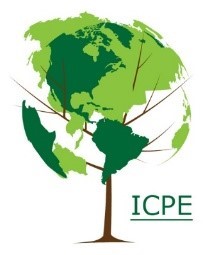
What is Sustainable Development? Sustainability is a concept that recognizes that human societies must meet their own needs without compromising future generations’ ability to do so. This concept encompasses many dimensions, such as people, the planet, prosperity, and community participation, and requires the unification of economics and ecology in decision-making. It can only be achieved through heroic and imaginative efforts. To achieve sustainable development, communities and businesses must rethink how they do business and manage their resources.
Sustainability is the idea that human societies must live and meet their needs without compromising the ability of future generations to meet their own needs
The term sustainability combines the words “exist and develop” to refer to the process of arranging a society so that it can meet its needs without depleting its natural resources. According to the Brundtland Report, which outlined the principles of sustainable development, a society is sustainable when it is designed to meet its current needs without depleting its future ones. This is an important issue, and a focus for sustainable development must be on achieving social responsibility, environmental protection, and maintaining a dynamic equilibrium between the human and natural systems.
Sustainability has many definitions, and it is often difficult to define in a nutshell. But most of the time, sustainability is understood to be the process of meeting one’s own needs while also protecting future generations. The idea is not a new one, and there is a large scientific literature that defines it. But the concept of sustainability is not yet synonymous with livability. It is more about the future than the present, and the way in which we use the resources available is crucial to its success.
Developing countries have long considered the concept of sustainability in their policies and their economic practices. Sustainable development involves reducing the amount of resources that humans consume and making their consumption patterns more sustainable. By reducing the amount of goods produced, a society can create more efficient supply chains and less waste. And decarbonisation involves reducing greenhouse gas emissions.
To develop sustainable companies, sustainable business practices must include environmental protection and social development. These two elements work hand in hand. Environmental protection involves reducing carbon footprints and minimizing the use of non-decomposable packaging, while social development is concerned with treating employees and stakeholders fairly. Businesses can also strive to create a culture of social harmony, with fair wages, and a commitment to education. In addition to environmental protection, sustainability also concerns the safety of workers and the environment.
The definition of sustainability has many nuances and is controversial. There is no universal definition of sustainability, and people assign different priorities to economic, social, and ecological assets. However, sustainability implies equity in contemporary society and for future generations. A complete framework of sustainability must be conceptually sound and have a clear vision of how to implement it.
It focuses on people, the planet, prosperity, and community participation
The term’sustainable development’ has become a catch-all phrase to describe a process involving the promotion of economic growth that is also good for the environment. The term itself was born out of the 1972 Stockholm Conference, which sought to reconcile economic development with environmental protection. The concept gained momentum during this period when the Brundtland Report linked poverty and environmental problems and concluded that meeting basic needs was one of the most important goals of development.
Rather than using the three pillars of sustainability as a set of objectives, IUCN advocates a framework that focuses on people, the planet, and community participation. The concept of sustainability was not formally coined until the late twentieth century. The Club of Rome’s ‘Limits to Growth’ argues for a sustainable world system. A few years later, The Ecologist published ‘A Blueprint for Survival’.
While the concept of sustainability is not new, the term is still not widely recognized. The International Labour Office and World Bank have criticized the concept, which advocates growth and economic progress. It has been criticized by many, including Hicks and Streeten and Arndt. Regardless of its origins, it is clear that there are many ways to define it and find its ideal balance.
The principles of sustainable development were formally enshrined in the 1992 Rio Summit. These principles – which focus on people, the planet, and community participation – were then formalised and institutionalized in the Rio Declaration on Environment and Development. Its key goal was to make economic growth, social equity, and environmental sustainability more closely interrelated. However, the principles of sustainable development remain the same.
These goals are called the Sustainable Development Goals (SDGs). These 17 goals have been adopted by member states of the United Nations in 2015. The Sustainable Development Goals aim to eradicate poverty, promote prosperity, and protect the environment by the year 2030. Sustainable development is a process that emphasizes the interrelationship between these three aspects of development. There are many facets to sustainable development. These goals are a roadmap for action, but all must be pursued by all citizens in order for sustainable development to happen.
It requires the unification of economics and ecology in decision-making
The concept of sustainability is based on the recognition that our human activities impact our environment and therefore have limits. In order to promote sustainable development, the objectives of economic and social development need to be defined with this concept in mind. Sustainability has multiple general characteristics, including:
This paradigm shift implies the need for permanent debates on major issues. Such debates are an act of civic education and enlightenment, and they cultivate dialogue and debate. In turn, this will help to create a culture of dialogue and consultation. In short, sustainable development is a necessary pre-requisite to sustainable development. However, it must be understood that this approach cannot be implemented in an instant.
Eco-development is not possible without the participation of society. Economic growth models often leave society with too much pollution and ecological problems. Ecological development calls for a rebalancing of economic roles. A fundamental element of this philosophy is an ecological economy that aligns economic growth models with the physical laws of the environment. This requires a concerted effort by all social actors to achieve sustainable development.
The disciplinary approach of sustainability refers to the integration of the various disciplines in a single model. A common approach combines economics and ecology as disciplines and encourages an open, collaborative atmosphere. Ultimately, this allows the creation of sub-disciplines, including industrial ecology, political ecology, cultural ecology, and functional economics. It is critical to understand both the physical and biological nature of production processes, as well as the interactions between them.
Sustainability has many advantages, and it requires the unification of economics and ecology. By considering both in tandem, sustainable development can become a reality. Incorporating these perspectives into decision-making can help organizations implement policies that lead to a healthier and more equitable society. For starters, it allows them to address the social and ecological challenges of the present and future. The concept of sustainability is not new, but is still relatively untapped. In many ways, stakeholder theory is a useful conceptual tool to operationalize this concept. It helps bridge the gap between the ethical and economic world.
The principles of solidarity remind us that sustainable development must benefit everyone. They are manifested on local, regional, and global levels. They extend to intergenerational logic. Lastly, sustainable development requires the unification of economics and ecology in decision-making. By integrating these disciplines, we can better understand the practices of sustainable development and improve our understanding of them. The principles of solidarity also enable us to rethink the place of economics in society and question the impact they have on social relations.
It requires heroic and imaginative efforts
The Sustainable Development Goals (SDGs) are a shared global plan for reducing extreme poverty, promoting sustainable development, and protecting the planet. Adopted by 193 countries in 2015, these goals have inspired people from all sectors to act. To achieve these goals, we need to apply imagination, creativity, and determination, and we must also learn from what works. As part of its efforts to meet the SDGs, the UN Foundation promotes ideas and initiatives that have a larger impact, are supported by evidence, and are backed by practical commitments.
Sustainability is an ongoing dynamic equilibrium whereby human activity fulfils the needs of the current population without causing adverse effects on the environment. The key concepts of sustainability are that human activities satisfy human needs and wants without exhausting productive resources, and are considerate of ecological resources. Sustainable development demands a holistic approach that takes into account these factors. The following are some key concepts that are key to understanding sustainable development. But what is sustainability and why is it important?









